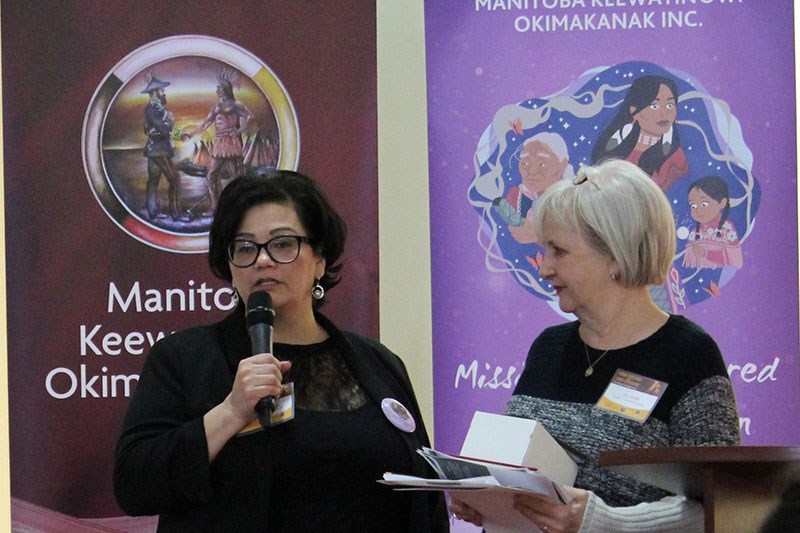From Feb. 5−7, over 100 people squeezed into the Ma-Mow-We-Tak Friendship Centre to learn more about human trafficking and sexual exploitation in the province.
This three-day forum was organized by Manitoba Keewatinowi Okimakanak (MKO) and featured a laundry list of speakers ranging from police specialists to activists to survivors of sexual violence.
While each presentation varied in terms of its subject matter, the underlying theme was the same: to raise awareness about an illegal trade that exploits approximately 400 children and youth in Manitoba every year.
To close out the conference’s first day, speaker Joy Smith hammered home the importance of increased education around this subject, including how to spot signs that someone you know is being targeted.
As a former member of Parliament, and now the head of her own self-titled foundation, Smith is one of the world’s leading advocates against human trafficking and said school curricula aren’t doing enough to protect children from predators.
“We need to go into the schools and talk to the kids and we need to make sure that the kids are supported,” she said Feb. 5. “I always tell the kids, you always have to pay attention to your friends, because the kids will know what’s going on with their friends far before teachers will or anybody else.”
Even though the vast majority of Manitoba’s illegal sex trade is concentrated in Winnipeg, event organizer Hilda Anderson-Pyrz said this issue affects Northern Manitoba as well since so many its young people eventually move down south.
“For MKO, it was really important to bridge the gap between the north and the south,” she said. “Because a lot of women and girls who go to major urban centres have been exploited or have become victims of human trafficking.”
As the missing and murdered Indigenous women and girls liaison for MKO, Anderson-Pyrz also pointed out that Aboriginal women are disproportionately represented as victims of sexual exploitation in Canada, which should give local groups extra incentive to learn more.
“When you look at all the resource development around Thompson we thought that when we arm individuals with knowledge and different tools then they’re able to do their work from an informed approach,” she said.
Over the next two days, the conference also showcased a variety of other perspectives on the subject, from members of the Winnipeg Police’s Counter Exploitation Unit to human trafficking survivor Rachel Willan.
For those who couldn’t attend the three-day event, Anderson-Pyrz said she plans to post most of the conference’s PowerPoint presentations on MKO's website at www.mkonation.com/mmiwg/ and to continue this conversation by organizing similar events in the future.
“I would like to continue to bring forums like this to Thompson, whether they look like this or they look like something else,” she said. “I would like to partner with other agencies and subject matter experts to bring it into our First Nations schools and even schools in Thompson.”




